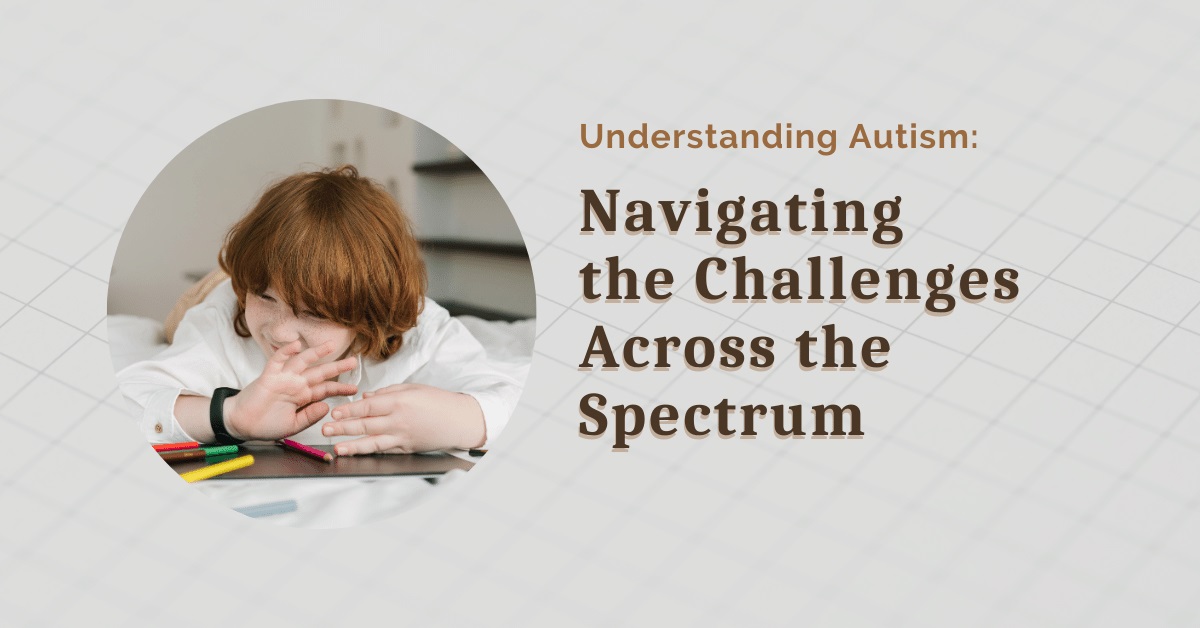
I. Introduction
Autism Spectrum Disorder (ASD) is a complex neurodevelopmental condition that affects individuals in various ways. From sensory sensitivities to social interaction difficulties and executive functioning challenges to anxiety and emotional regulation issues, navigating life with autism presents a myriad of obstacles. In this article, we will explore individuals’ multifaceted challenges with autism and discuss strategies to address these challenges across different aspects of life.
II. Communication Challenges
Communication challenges are among the most common difficulties faced by individuals with autism. These obstacles can manifest in various ways, including difficulties with verbal and nonverbal communication, understanding social cues, and engaging in reciprocal conversations. Many individuals with autism may struggle with expressive language skills, such as initiating and maintaining conversations. They also experience difficulties using appropriate language for different contexts and understanding non-literal language. Additionally, receptive language difficulties, such as understanding sarcasm, idioms, or indirect language, can compound communication challenges for individuals with autism.
Exploring strategies to address communication difficulties is crucial for promoting effective communication and social interaction for individuals with autism. Caregivers and professionals can help autistic individuals improve their communication skills using clear and concise language. They can also provide visual support using alternative communication approaches such as augmentative and alternative communication (AAC) systems. Caregivers can also provide opportunities for practicing social communication skills in structured and supportive environments. Speech-language therapy can also be beneficial in helping individuals with autism develop speech production, language comprehension, social communication, and pragmatic language skills.
By addressing communication challenges and implementing effective strategies for improving communication skills, individuals with autism can enhance their ability to connect with others, express their thoughts and feelings, and navigate social interactions more successfully.
III. Sensory Processing
Sensory processing encompasses sensory sensitivities and sensory-seeking behaviors commonly experienced by individuals with autism. Sensory sensitivities involve heightened reactions to sensory stimuli such as light, sound, touch, and smell, leading to discomfort, anxiety, and difficulty concentrating. On the other hand, sensory-seeking behaviors involve actively seeking out specific sensory experiences, such as spinning, rocking, or repetitive movements, which individuals with autism may engage in to regulate their sensory input or to seek comfort. These sensory processing challenges can significantly impact daily life, leading to discomfort, anxiety, and difficulty concentrating.
Understanding sensory processing challenges is crucial for creating supportive environments for individuals with autism. Strategies such as providing sensory-friendly accommodations, sensory diets, and sensory integration therapy can help individuals manage sensory sensitivities and fulfill their sensory needs positively and constructively. By addressing sensory processing difficulties, individuals with autism can better regulate their sensory experiences and improve their overall well-being.
IV. Social Interaction
Social interaction can be very challenging for individuals with autism due to communication difficulties. They also need help understanding social cues and building relationships. These difficulties can result in feelings of isolation and frustration. By discussing the problems individuals with autism may encounter in social situations, we can better understand their needs and promote inclusion and acceptance. Social skills training, peer support groups, and inclusive community activities can help individuals with autism develop social skills and cultivate meaningful connections with others.
V. Anxiety and Emotional Regulation
Anxiety and difficulties with emotional regulation are prevalent among individuals with autism. They can significantly affect mental health and overall well-being. Understanding the underlying factors contributing to stress and emotional dysregulation in autism is essential for providing appropriate support and intervention. Cognitive-behavioral therapy, mindfulness techniques, and sensory-based interventions can help individuals with autism manage anxiety. It could help them improve their ability for emotional control.
VI. Sleeping Problems
Sleeping problems are common among individuals with autism. It includes difficulty falling asleep, frequent night awakenings, and irregular sleep patterns. These sleep-related challenges can exacerbate other problems and affect overall functioning and quality of life. Exploring the specific sleep-related challenges faced by individuals with autism and implementing strategies to address these issues are crucial for promoting healthy sleep habits. Sleep hygiene practices, bedtime routines, and sensory accommodations can help individuals with autism improve sleep quality and overall well-being. Additionally, individuals with autism often use melatonin supplements under medical supervision to address sleeping difficulties and enhance the quality of sleep.
VII. Executive Functioning
Difficulties with executive functioning, like organization, planning, and time management, are common among individuals with autism. These challenges can affect many facets of life, including school, work, and daily routines. Exploring how individuals with autism navigate executive functioning difficulties is crucial for providing adequate support. Strategies such as visual schedules, task breakdowns, and organizational tools can help individuals with autism improve their executive functioning skills. It can help them succeed in various domains of life.
VIII. Access to Support Services
Accessing support services, including diagnosis, therapy, and educational resources, can be challenging for individuals with autism. Most individuals face various obstacles, such as financial constraints, geographical location, and lack of awareness. Discussing these barriers and exploring ways to improve access and availability of support services is essential for ensuring that individuals with autism receive the comprehensive care and support they need to thrive.
Navigating the challenges of autism requires a comprehensive understanding of the diverse needs and experiences of individuals across the spectrum. By exploring these challenges and discussing strategies for addressing them, we can promote inclusion, acceptance, and support for individuals with autism and their families. Together, we can work towards creating a more inclusive and supportive society where everyone has the opportunity to thrive, regardless of their neurodevelopmental differences.
What are some common sensory sensitivities experienced by individuals with autism?
Individuals with autism may experience sensitivity to light, sound, touch, and smell, leading to discomfort, anxiety, and difficulty concentrating. These sensory sensitivities can vary widely from person to person and may impact daily life activities.
How can sensory accommodations help individuals with autism manage sensory sensitivities?
Sensory accommodations involve modifying the environment to reduce sensory overload and provide a more comfortable experience for individuals with autism. Examples include:
- Using dim lighting.
- Giving noise-canceling headphones.
- Offering fidget toys for tactile stimulation.
- Using calming scents or essential oils.
What strategies can help improve social interaction skills in individuals with autism?
Social skills training programs, peer support groups, and inclusive community activities can help individuals with autism develop social skills and foster meaningful connections with others. Additionally, providing opportunities for practicing social interactions in structured and supportive settings can be beneficial.
How can caregivers support autistic individuals in managing executive functioning difficulties?
Caregivers can support individuals with autism in managing executive functioning difficulties by providing structure and routine, breaking tasks down into smaller steps, using visual supports such as visual schedules and checklists, and offering reminders and prompts as needed.
Is melatonin supplementation safe for individuals with autism to address sleeping difficulties?
Melatonin supplementation, a natural supplement, can be a beneficial treatment approach for individuals with autism who experience sleeping difficulties, particularly in regulating their sleep-wake cycle. However, consulting healthcare professionals is essential to determine the appropriate dosage, timing, and potential interactions with medications.





